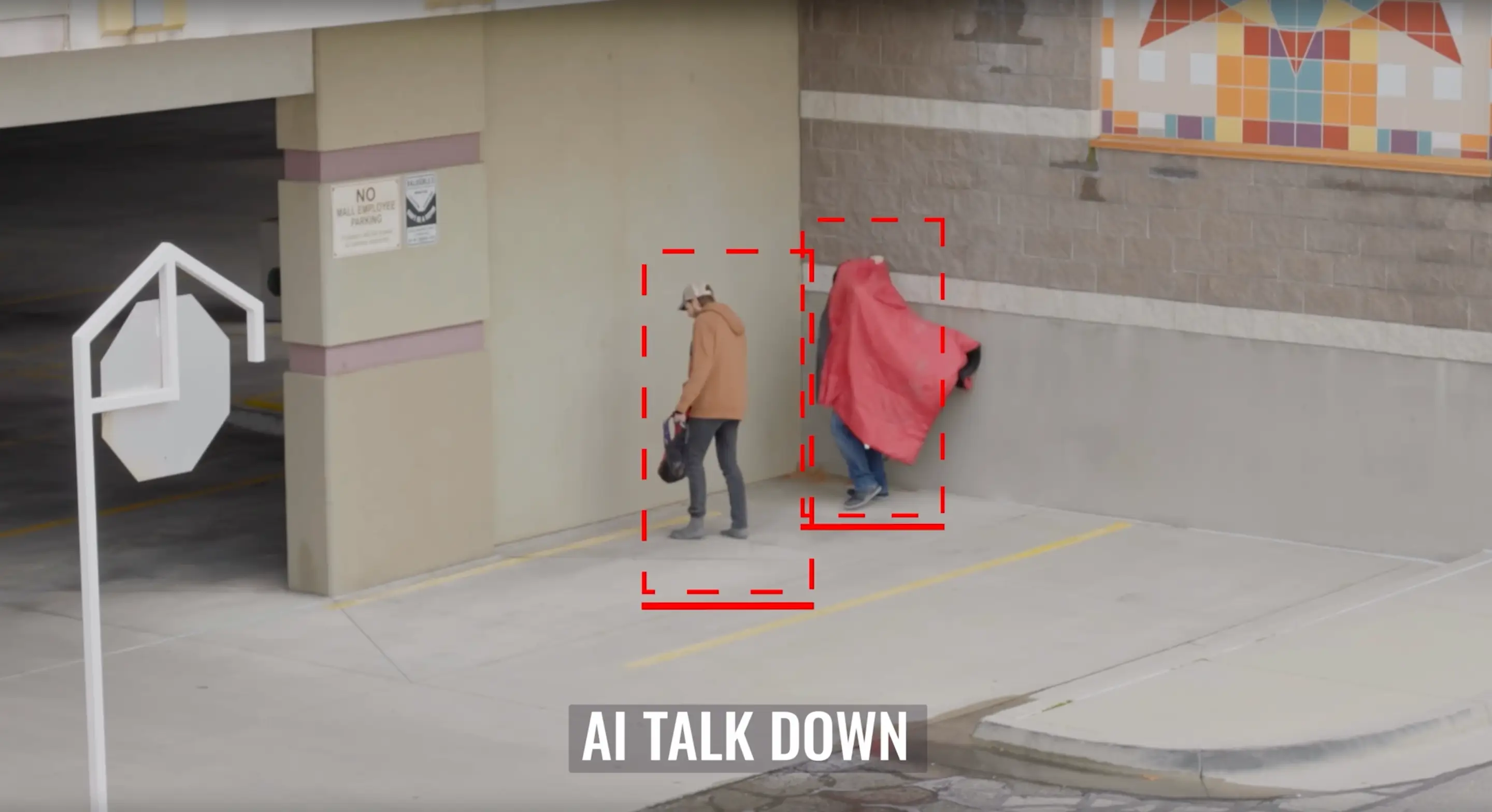Summary
- Security is shifting from reactive to proactive: Traditional security relied on alarms and recorded footage, but AI-driven analytics and real-time alerts have improved threat detection and deterrence.
- Agentic AI takes this evolution further: Unlike standard AI, which flags potential threats for human review, agentic AI operates autonomously, analyzing patterns, assessing risks, and responding dynamically to incidents.
- How it could transform physical security: Agentic AI can customize deterrence, adapt to criminal behavior, and accelerate evidence gathering, reducing response times and increasing efficiency.
- What this means for security professionals: AI will reduce false alarms, allow teams to do more with the same resources, and streamline investigations, making security work more strategic, efficient, and effective.
For a long time, security was a game of reaction. An alarm sounded, a camera recorded, and a guard reviewed the footage—usually long after the threat had passed when it was too late to change the outcome or achieve any form of justice.
Over the past few years, we’ve seen a shift toward proactive security. Smarter surveillance, real-time alerts, and AI-driven analytics now help security teams stay ahead of threats, and these features have been game changers, cost cutters, and, in many cases, life savers.
But now, generative AI agents are set to take that shift to the next level, transforming how businesses and communities safeguard their assets, people, and operations. Let’s break down what this means, why it matters, and how it could change the role of security professionals.
What Is a Generative AI Agent?
Generative AI agents, or agentic AI, refers to AI systems that operate autonomously, making decisions and taking actions without the need for constant human oversight. Unlike traditional AI, which requires manual prompts or pre-programmed instructions, Agentic AI can “think.” This means it can do things like:
- Identify patterns and threats, and respond with appropriate countermeasures
- Make decisions based on historical and contextual data
- Learn from interactions to improve future decision-making
Agentic AI is a significant leap forward from standard AI, which typically functions as an analytics tool—flagging potential concerns but leaving the next steps to human operators.
How Agentic AI Could Change The Physical Security Landscape
1. From Passive Monitoring to Real-Time Action
Traditional security setups rely on cameras, alarms, and motion detectors to detect threats—but these solutions often stop short of preventing incidents entirely. LVT’s solutions have already changed that, deterring crime with strobe lights, loudspeakers, and an unmistakable presence that makes bad actors think twice, but Agentic AI takes deterrence from reactive to strategic.
Instead of responding the same way to every potential threat, generative AI agents could analyze the situation, adapt, and react appropriately. This might look like:
- Triggering the right deterrents at the right time, whether that’s a verbal warning, flashing lights, or an escalation to human intervention
- Reducing alert overwhelm by deciding which movements are harmless and which ones require action
- Making deterrence feel more personal, because when an intruder hears a warning directed specifically at them, they’re more likely to back down
Watch this video to get a brief overview of agentic AI from Steve Lindsey.
2. Learn from and Adapt to Criminal Behavior
Today, AI-powered security systems do more than just detect motion—they can recognize patterns that indicate potential threats, such as:
- Lingering near restricted areas or access points
- Erratic movement, like pacing or repeatedly circling a location
- Coordinated group actions, such as multiple individuals entering a store from different doors at the same time
When these behaviors are detected, AI-powered security systems can trigger automated deterrents, send alerts to security personnel, or log incidents for review. Agentic AI could go a step further, determining whether the situation requires immediate intervention or passive monitoring. Plus, the agent’s threat detection skill could be refined over time, improving accuracy and response efficiency for future incidents.
3. Accelerate Evidence Gathering & Prosecution
Personnel often spend hours, days, or even weeks manually reviewing footage, compiling reports, and verifying data. AI agents could speed up this process significantly by tagging and organizing key footage in real time and aggregating multiple data sources (cameras, sensors, access logs) into a single report.
What Does This Mean for Security Professionals?
Focus on Real Threats, Not False Alarms
When systems send an alert about every minor motion event, personnel waste time responding to non-threats—wildlife, weather, or simple movement in non-sensitive areas. Agentic AI could significantly reduce this burden by filtering out irrelevant activity and ensuring that only verified threats trigger responses. This would allow teams to prioritize and respond faster to real incidents.
Do More with the Same Resources
Hiring more personnel is expensive, and with many budgets already stretched thin, increasing headcount often isn’t a viable option. Agentic AI could be the ultimate force multiplier, allowing organizations to extend their coverage without bringing additional personnel on board.
Conduct Faster, More Effective Investigations
After an incident, security teams often sink a lot of time into compiling evidence, manually searching footage, and verifying timelines. With an AI agent tagging key moments, organizing data, and reducing the time spent on forensic work, teams can focus on prosecuting rather than paperwork.
Stay Two Steps Ahead with LVT
Hear from LVT's CTO, Steve Lindsey, to hear about how LVT is implementing agentic AI.
Agentic AI is posed to completely transform the physical security landscape. At LVT, we’re building the tools that make real-time, intelligent security a reality. If you’re ready to learn how our mobile security units can protect your assets, deter crime, and streamline security operations, schedule a demo today.





